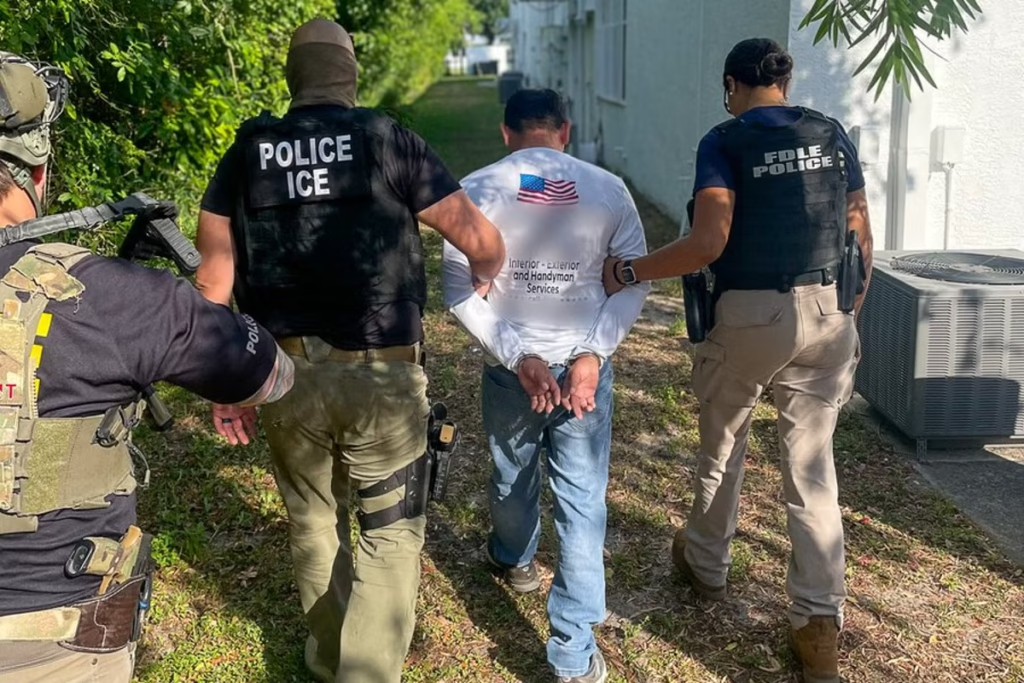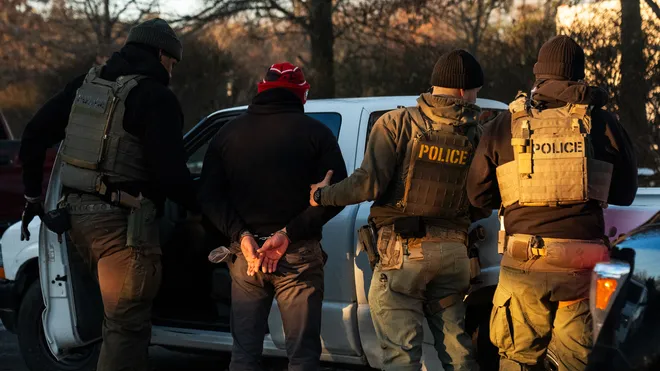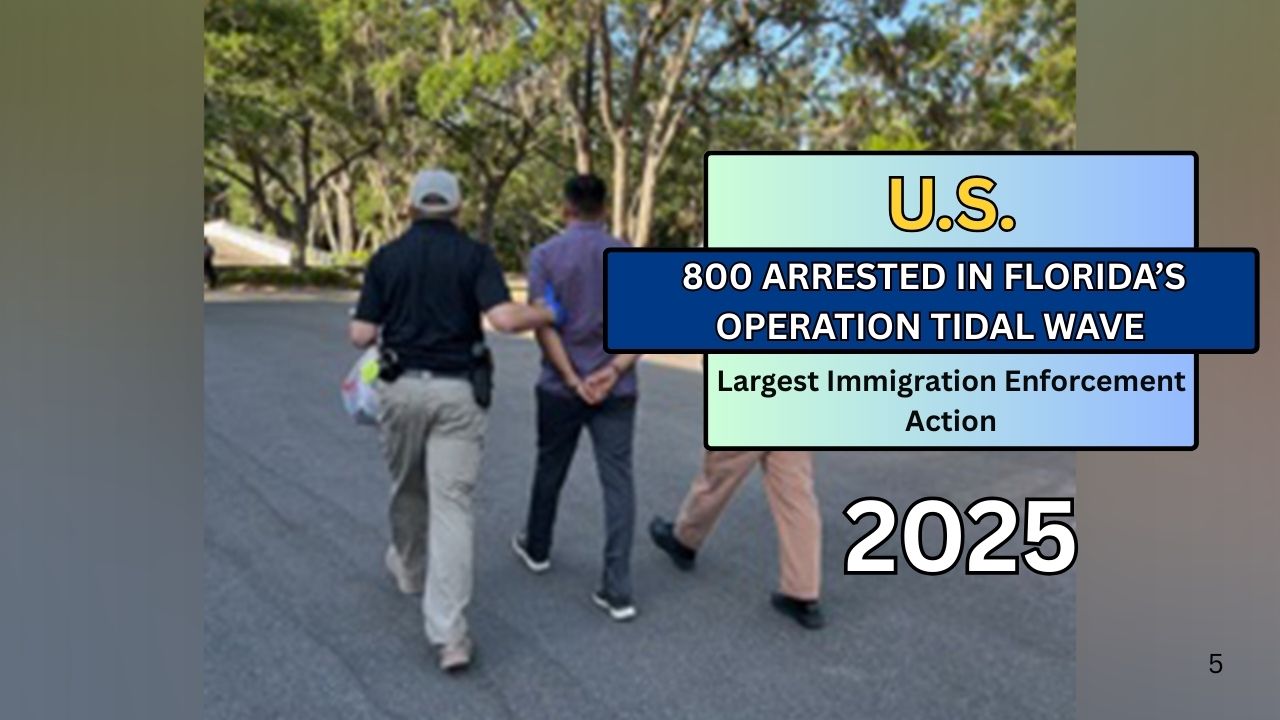In a sweeping immigration enforcement operation, U.S. Immigration and Customs Enforcement (ICE) arrested nearly 800 individuals across Florida in what has been dubbed Operation Tidal Wave. Launched in late April 2025, the operation was one of the largest ever conducted in the state, signaling a continued push by the federal government to crack down on illegal immigration, particularly targeting individuals with criminal backgrounds.
The Scope of the Operation
Over the course of four days, nearly 800 individuals were detained in Operation Tidal Wave. A majority of these individuals were immigrants with final deportation orders, while others had criminal backgrounds or were affiliated with dangerous criminal organizations. Approximately 275 of those arrested had already been ordered removed from the United States but had failed to comply with previous deportation orders.
The operation targeted a variety of individuals, ranging from gang members to foreign nationals with international warrants. Jose Sanchez Reyes, a Colombian national, was among the most notable of those arrested, as he had been convicted of homicide in his home country. Another high-profile arrest involved Rafael Juarez Cabrera, a member of the MS-13 gang from Guatemala, who had entered the U.S. illegally multiple times. The operation also resulted in the capture of Savva Klishchevskii, a Russian national wanted for vehicular manslaughter, and Aron Isaak Morazan-Izaguirre, a Honduran man linked to the 18th Street Gang with possible terrorism ties.
While the majority of those arrested were males, the operation also saw the detention of women and minors, although the latter were mostly processed and released into the care of family members while awaiting deportation proceedings.

A Collaborative Effort
Operation Tidal Wave marked a significant collaboration between federal, state, and local law enforcement agencies. Under the 287(g) program, which deputizes local law enforcement officers to enforce federal immigration laws, nearly 230 Florida law enforcement agencies participated in the operation. The initiative was praised for its wide-reaching and effective coordination.
The operation was described as a “first-of-its-kind” effort, as it utilized a unique partnership model that saw local law enforcement officers not only assisting in arrests but also helping in the identification of potential immigration violators during routine patrols and arrests. Florida Governor Ron DeSantis expressed his support for the operation, lauding the effort as a successful example of state and federal cooperation in immigration enforcement.
Federal agencies, including Customs and Border Protection (CBP), provided significant logistical and intelligence support, making the operation a joint effort on an unprecedented scale. According to ICE officials, the coordination between various agencies allowed for the rapid deployment of resources, which significantly contributed to the operation’s success.
Political and Legal Ramifications
The timing of Operation Tidal Wave has sparked political and legal controversy. In conjunction with the arrests, two judges in Florida were implicated in a scandal, accused of obstructing immigration enforcement by allegedly harboring illegal immigrants. These revelations have ignited debates on the balance between the need for law enforcement and the independence of the judiciary.
The operation has also raised concerns among immigrant rights groups, who argue that such large-scale enforcement actions can lead to racial profiling and violations of due process.
Advocacy groups have expressed concerns about the treatment of detainees, particularly in instances where individuals are arrested without sufficient evidence or are subjected to harsh detention conditions.
These groups have also criticized the use of local law enforcement officers in enforcing federal immigration laws, calling for a reevaluation of the 287(g) program.
However, supporters of the operation contend that this is a necessary step in maintaining national security and ensuring that individuals with criminal backgrounds or who have overstayed their visas are held accountable. They argue that local law enforcement involvement provides crucial support in addressing the growing concerns over illegal immigration and public safety.

The Future of Immigration Enforcement in Florida
Operation Tidal Wave is just one example of the increasing focus on immigration enforcement in Florida. The state has become a focal point for immigration-related issues, with both state and federal lawmakers pushing for stricter border security and more robust enforcement of immigration laws.
The use of the 287(g) program is expected to expand, with more agreements likely to be signed between ICE and local law enforcement agencies in the coming years. Critics, however, worry that this expansion could lead to further tension between law enforcement and immigrant communities, who may feel more vulnerable to deportation.
As the debate over immigration enforcement continues, Florida remains at the heart of the discussion. The state’s demographic makeup, proximity to Latin America, and large immigrant population make it a key battleground for policies aimed at curbing illegal immigration.
This article has been carefully fact-checked by our editorial team to ensure accuracy and eliminate any misleading information. We are committed to maintaining the highest standards of integrity in our content.

Deepak Grover is a dedicated content writer at OTE News, specializing in government affairs, public policy, and current events. With a keen eye for detail and a passion for factual reporting, he ensures readers receive accurate and insightful news. Deepak holds a degree in Political Science and has experience in research-driven journalism.
When not writing, he enjoys reading historical books, exploring hiking trails, and staying updated with global political trends. His commitment to ethical journalism makes him a trusted voice at OTE News.




